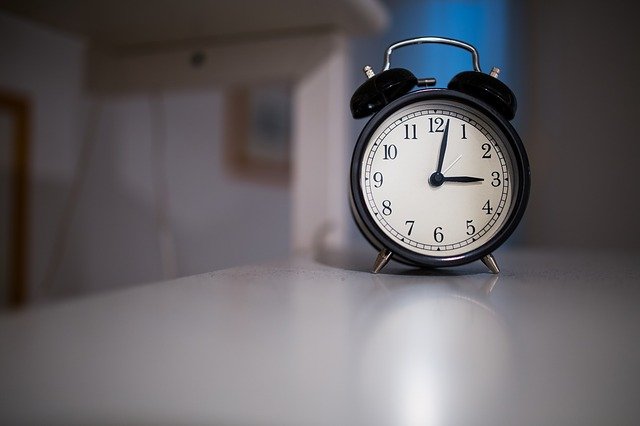Difficulty waking up in the morning? The best alarm sound to wake up to is a melodic alarm tone, recent research suggests.
What sound do you wake up to? Is it the harsh, monotonous tone of beep, beep, beep? Is it your favorite tune? Clock radio?
According to a new study, published in PLoS One, the sound you set for your wake-up alarm could affect how disoriented you are in the morning.
Morning grogginess—or, more formally, sleep inertia—is a decrease in alertness between zero to four hours after waking up.
While four hours of sleepiness may be permissible for some (caffeine solves all problems, right?), some professions require immediate alertness, like first responders or NASA astronauts.
For these professions, sleep inertia can be fatal. In 2010, Air India Flight Express Flight 812 crashed soon after the pilot woke up from a nap. The crash resulted in 158 fatalities.
What to do to optimize morning alertness?
Optimizing morning alertness is what prompted researchers at RMIT University, Australia, to investigate the relationship between sleep inertia and alarm sound.
Previous research has indicated that music and alarm sounds could negate the effects of sleep inertia.
Since society heavily relies on morning alarms, with 68.2% of people using one, determining the best alarm sound to wake up can drive early day efficiency.
The study
Fifty people participated in the study from the comfort of their homes. The researchers instructed the participants to complete an anonymous, online questionnaire within four hours of waking.
The questionnaire included questions about whether they used an alarm, the type of alarm sound, grogginess, and subjective feelings about their alarm.
The study lasted from May 2017 to May 2018.
Relationship between sleep inertia and alarm sound type
The researchers did not find a significant relationship between sleep inertia and alarm sound type, nor did they find a significant relationship between sleep inertia and subjective feelings about the alarm.
They did, however, find an association between melody and sleep inertia.
Melodic alarm tones reduced morning grogginess, while neutral, unmelodic alarm tones increased morning grogginess.
Examples of melodic alarms include The Beach Boys’ “Good Vibrations” or The Cure’s “Close to Me.” An example of an unmelodic alarm is an incessant beep, beep, beep.
While the results indicate that alarm tones should be melodic, more research still needs to be done.
The study did not take into account the participant’s lifestyle, sleep habits, or length of sleep.
All of these could play a role in sleep inertia, regardless of the alarm sound.
Other factors to consider are the placement of the alarm, volume, and possibly the accessibility of the snooze button.
References
- McFarlane, S., Garcia, J., Verhagen, D. and Dyer, A. (2020). Alarm tones, music and their elements: Analysis of reported waking sounds to counteract sleep inertia. PLOS ONE, 15(1), p.e0215788.
Image by StockSnap from Pixabay



